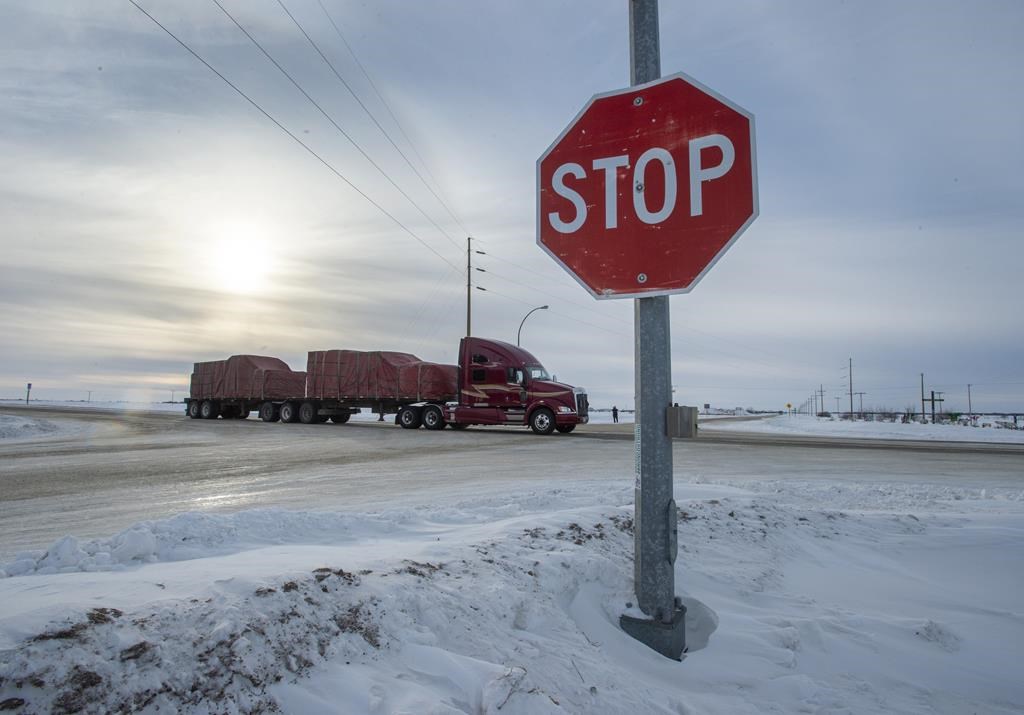Five years after Humboldt bus crash, families still calling for better highway safety

Posted April 6, 2023 3:51 pm.
Last Updated April 7, 2023 10:16 am.
The Humboldt Broncos bus crash – a tragedy, that gripped a nation – immediately put a focus on the need for changes on our roads and the trucking industry.
Chris Joseph’s son Jaxon, was one of 16 people killed when the hockey team’s bus collided with a semi that had blown through a stop sign on a Saskatchewan highway.
Five years later, those impacted by the tragedy say not enough has been done to improve roads.
“Not even close to being enough. That has been a point of frustration. It comes down to politicians and dollars,” said Joseph.
The Joseph’s and other Broncos families, launched a non-profit to push for changes to traffic safety laws to protect the next generation.
“You know, like a lot of things, in the beginning, we jumped in both feet and we tried to get make some change. And everybody was emotional, and some things happened,” explained Joseph.
The truck driver pleaded guilty to all counts of dangerous driving. It was only after court that the public learned he had just two weeks of training on the vehicle he was driving.
The Alberta-based company, Adesh Deol Trucking, later pleaded guilty to not following provincial and federal safety rules.
“As an industry, I believe failed the driver of that vehicle, the industry did and the country did, by not ensuring he was trained properly to be in that vehicle. And we failed everyone who was involved,” explained Mike Millan, president of Private Motor Truck Council.
RELATED:
- A father’s grief: podcast explores Humboldt Broncos tragedy, suicide, pain of losing a son
- Humboldt holds tribute five years after deadly bus crash
- How Humboldt Broncos crash victim Logan Boulet inspired thousands to become organ donors
So what has changed for commercial truck drivers? Alberta, B.C., Saskatchewan, and Manitoba have all joined Ontario in requiring Mandatory entry-level training. But industry experts still say we need a more national approach.
“It’s a national safety standard, that all the provinces and territories agreed to implement in 2020. And three years later, we are still waiting.”
Millan says there are still places in Canada, you can get your commercial license to drive across the country, with no training. Seeing a patchwork of enforcement, to make sure companies are following the rules.
And while road safety is provincial jurisdiction, the technical director of Safer Roads Canada, says the federal government needs to step up and become a leader to for safety with commercial driving and make sure provinces are working together by doing things like data sharing.
“So for example, a truck could be in a collision in one province, and it may take 3-4 years for that information to trickle back to their home province to be recorded on their safety fitness report,” explained Ahmed Shalaby, technical director of Safer Roads Canada.
Professor Shalaby says some of the reason for the delays in mandatory training had to due with the pandemic, as supply chain issues shone a light on the shortage of commercial drivers.
“That caused actions to be slowed down to ensure that these blood lines were able to continue to operate, and we have the good that we needed at the times that we need them. Trucking is part of the critical infrastructure system of our country, and it’s in all our best interest to make sure it is operating and safe, and other users on the roads are safe.”
Millian says while the current driver shortage is an issue, there are ways that provinces can both address the need for skilled drivers without compromising on safety. While the cost for training can be a barrier, pointing to programs and grants that can support those entering the field.
Better training is one step. Another is electronic monitoring for trucks going between provinces. Still, more safety guidelines are needed.
“The unfortunate thing for us is that we have not learned all we could from this tragedy and others,” said Shalaby.
Joseph, says sometimes the slow pace of change can feel like an exercise in futility.
“There’s days when I feel like I’m just banging my head against the wall and I’m getting nowhere, but something keeps pushing me to keep advocating for it. I think me personally I think it’s Jaxson. I think it’s my son that’s pushing me a little bit. So I’m not giving up on that one quite yet.”








